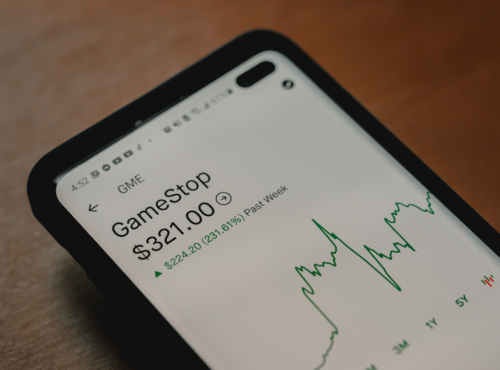
By CRAIG LAZZARA
Recent headlines have reflected the extraordinary behavior of GameStop Corp.; the company’s stock rose from $18.84 at year-end 2020 to $325 at the close on Jan. 29, 2021, then declined to $90 in the first two trading days of February. At year-end, GameStop was the 314th largest stock in the S&P SmallCap 600. By the end of January it had risen to #1. GameStop had been heavily shorted by hedge funds, and its rise was partly fuelled by retail traders hoping to profit from a short squeeze.
Even a casual reader of our SPIVA reports will realise that most active managers underperform most of the time. One reason for this is that there is no natural source of outperformance, or “alpha”. The outperformers’ positive alpha depends entirely on the underperformers’ negative alpha. If the “game” of investment management is played between professional investors and what I affectionately call “undiversified amateurs”, we might expect the professionals to win more often than they lose, given their advantages in fundamental analysis, data access, and trade execution. These advantages might even be enough to allow most professionals to beat the market as a whole; in the 1950s and 1960s, this was often the case in the U.S. asset management business.
By the end of the 1960s, however, the tides had shifted. More and more assets were managed professionally, so that professionals were increasingly competing against each other, not against amateurs. When professionals become dominant, the amateurs who remain don’t generate enough negative alpha for the majority of professionals to outperform consistently. That, among other reasons, is why indexing started in the early 1970s — not a decade sooner or a decade later.
Which is not to say that amateurs are irrelevant. If the relative demise of amateurs helped fuel the rise of indexing, might their resurgence have the opposite effect? And what does the action in GameStop mean for market efficiency? I think the answer to these questions is “no” and “not much.” Consider:
— Despite its 1,625% total return in January, GameStop remains a relatively small company. Its total market capitalisation at January’s close was $21.2 billion, which is less than 1% of the market cap of Apple Inc., for the moment the largest stock in the S&P 500®.
— If GameStop were a member of the S&P 500, its end-of-January ranking would have been #297.
— It may be the case that retail demand can push GameStop up. Without continued demand, however, it won’t stay up, which may be the lesson of the first two days of February.
GameStop has been an interesting phenomenon among small caps, but without great significance for the market as a whole. Within its limits, the stock reminds me of Dr Johnson’s characterisation of Lord Chesterfield: “This man I thought had been a Lord among wits; but, I find, he is only a wit among Lords.”
CRAIG LAZZARA is Managing Director and Global Head of Index Investment Strategy at S&P Dow Jones Indices
This article was first published on the Indexology blog.
For more valuable insights from our friends at S&P Dow Jones Indices, you might like to read these other recent articles:
Is equal weighting worth considering?
Beware spectacular success stories
2020 and the danger of extrapolation
Three reasons why the index advantage will persist
How courageous is your fund manager?
PREVIOUSLY ON TEBI
The impact of Morningstar ratings on fund flows and returns
Baroness Altmann: UK investors need better protection
Trading on a phone increases risk-taking, study finds
Three things to remember about emerging markets
12 common mistakes people make with money
How do target-date funds affect the markets?
Does a well-paid job make you happy?
People need advisers because they’re human
CONTENT FOR ADVICE FIRMS
Through our partners at Regis Media, TEBI provides a wide range of content for financial advice and planning firms. The material is designed to help educate clients and to engage with prospects.
As well as exclusive content, we also offer pre-produced videos, eGuides and articles which explain how investing works and the valuable role that a good financial adviser can play.
If you would like to find out more, why not visit the Regis Media website and YouTube channel? If you have any specific enquiries, email Sam Willet, who will be happy to help you.







